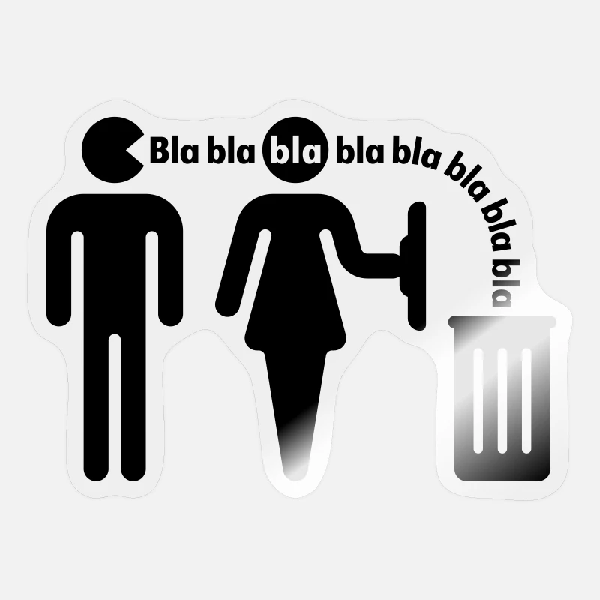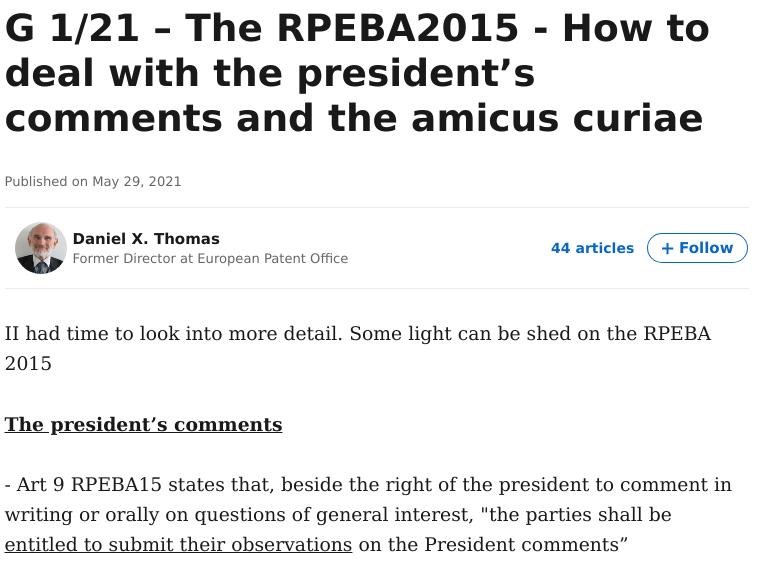

Coverage of the oral proceedings of 28 May in the 'IP' blogosphere has been predominantly vapid and superficial but there has been one interesting exception.
A number of reports on the oral proceedings of 28 May 2021 have appeared in the 'IP' blogosphere, for example:
 The coverage so far has been predominantly vapid and superficial but one interesting exception is the following contribution from a former EPO Director, Daniel X. Thomas:
The coverage so far has been predominantly vapid and superficial but one interesting exception is the following contribution from a former EPO Director, Daniel X. Thomas:
"G 1/21 – The RPEBA2015 - How to deal with the president’s comments and the amicus curiae".
In his commentary, Thomas points out that it was the representative of the appellant who had to draw the attention of the Enlarged Board to Article 9 of its own rules of procedure.
"According to Thomas, it was "really flabbergasting" that the Enlarged Board sent the President's comments to the parties just two days (!) before the oral proceedings."This provides that - in addition to the right of the President to comment in writing or orally on questions of general interest - "the parties shall be entitled to submit their observations on the President's comments”.
According to Thomas, it was "really flabbergasting" that the Enlarged Board sent the President's comments to the parties just two days (!) before the oral proceedings.
He found it "even more flabbergasting" that the representative of the President [Mihály Ficsor] "was arguing and bickering" that because the President’s comments were published on the Internet, the appellant "had plenty of time to consult them and there was no need for postponement".
The following comments from Thomas sum up the feelings of many observers:
One can wonder why in view of the clear legal situation it took the EBA so long to deliberate on the matter.
At this level of amateurism or precipitation one can wonder what can still happen.
"But even if the 'IP' blogosphere has for the most part failed to get to grips with the serious issues at stake in the present case, this hasn't stopped some juicy material from appearing in the comments posted underneath the articles themselves."The commentary published by Thomas is probably the most perceptive and critical report on which has appeared to date. As such, it makes a refreshing contrast to the otherwise vacuous coverage of the hearing of 28 May.
But even if the 'IP' blogosphere has for the most part failed to get to grips with the serious issues at stake in the present case, this hasn't stopped some juicy material from appearing in the comments posted underneath the articles themselves.
In the next part we will take a closer look at some of these comments. ⬆